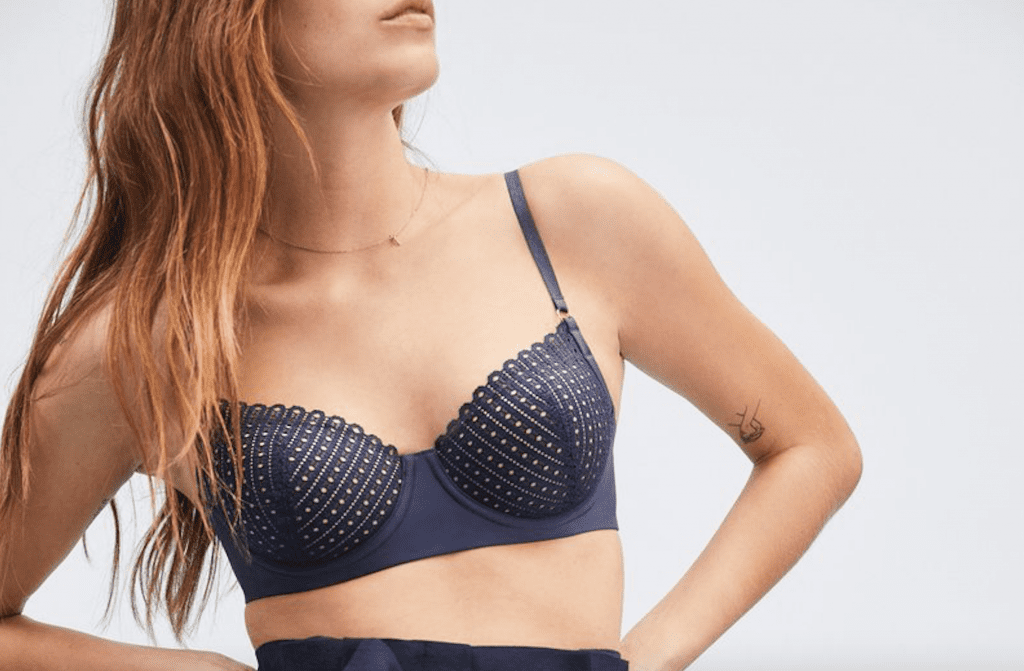“We’re nobody’s third love, we’re their first love. Victoria’s Secret has been women’s first love from the beginning,” Ed Razek, the senior creative at Victoria’s Secret, told Vogue in a November 2018 interview. The comment was clearly a jab at ThirdLove, Victoria’s Secret’s lingerie-making rival, a 6-year old San Francisco-based startup that has racked up market share – and an estimated $160 million in annual revenues – thanks to its focus on providing undergarments for a wide array of body sizes and types.
Razek’s comment wouldn’t be the first – or the last – of the barbs traded between the two undergarment industry players. Heidi Zak, who launched ThirdLove with her husband, David Spector, in 2013, has stated in no uncertain terms in an array of interviews that she set out to build her own brand after seeing significant gaps in the market, many left by Victoria’s Secret, in particular, including the 41-year old market stalwart’s outdated marketing model and its failure to cater to women of all sizes. (ThirdLove is filling the void, in part, by offering up a whopping 78 different bra sizes, including half-cup sizes).
Nothing would top Zak’s hard-hitting response to Razek’s Vogue comment, though, which would not come in the form of a Vogue interview of her own, but as a New York Times ad just days later. In a full-page open letter addressed to Victoria’s Secret, Zak asserted, “You market to men and sell a male fantasy to women … Your show may be a “fantasy” but we live in reality.” In addition to quoting Razek’s “first love” comment, Zak implored the company to “stop telling women what makes them sexy — let us decide.” Zak indisputably won that round.
The rivalry goes much deeper than public-facing commentary, and extends to the $68.6 million in funding that ThirdLove has raised to date. Among the list of individuals and entities that have ponied up funds to bank on the continued success of ThirdLove and fuel its expansion is one particularly striking name: Lori Greeley, Victoria’s Secret’s former CEO, who is not only an investor but a member of the company’s board.
Still yet, it appears that Victoria’s Secret has been planning to take the parties’ lingering feud to the market by way of a not-yet-launched collection of clothing, swimwear, undergarments, and cosmetics. As first reported by WWD, counsel for Victoria’s Secret filed two trademark applications for registration with the U.S. Patent and Trademark Office (“USPTO”) in late October (i.e., just before Razek’s public declaration to Vogue).
In connection with the respective filings, the lingerie giant is seeking federal protections for “Victoria’s Secret First Love” for use on “body wash; body lotion; perfume; lip gloss; [and] facial masks,” among other cosmetic products, and garments, including (but not limited to) “lingerie; athletic shorts; jackets; swimwear; [and] tank tops.”
The application for “Victoria’s Secret First Love” for use on cosmetics has gotten the go-ahead by the USPTO, and will be issued a registration once Victoria’s Secret can show that it is actually using the mark on those products in the market.
As for the clothing and swimwear application, Victoria’s Secret is facing some pushback. To be exact, the USPTO preliminarily refused to register the mark in December, asserting that “Victoria’s Secret First Love” is confusingly similar to – and thus, potentially barred from registration by – “First Love,” an already-registered trademark for the same class of goods, namely, women’s clothing. According to the USPTO, apparel wholesaler Top Fashion of NY Inc. uses “First Love” for one of its clothing collections, and received a registration for the mark in September 2015.
The USPTO’s examining attorney stated in the December refusal that Victoria’s Secret’s “mark merely adds a house mark to [Top Fashion of NY’s] First Love mark,” and that simply “adding a house mark to an otherwise confusingly similar mark will not obviate a likelihood of confusion.” More than that, the USPTO held that the types of products that Victoria’s Secret aims to use its trademark on are “closely related to” the goods that Top Fashion of NY makes, creating an ever greater likelihood that consumers will be confused as to the source of the two companies’ products.
This is not necessarily the end for Victoria’s Secret, as it has until late June to respond to the USPTO’s refusal with arguments in support of registration.
Meanwhile, ThirdLove is fresh from an additional $55 million raise from the likes of L. Catterton, which is partially owned by luxury goods conglomerate LVMH and Groupe Arnault; Katie Couric; Anne Wojcicki, the cofounder and CEO of 23andMe; and her sister Susan Wojcicki, the CEO of YouTube, among others, bringing its valuation to more than $750 million.











